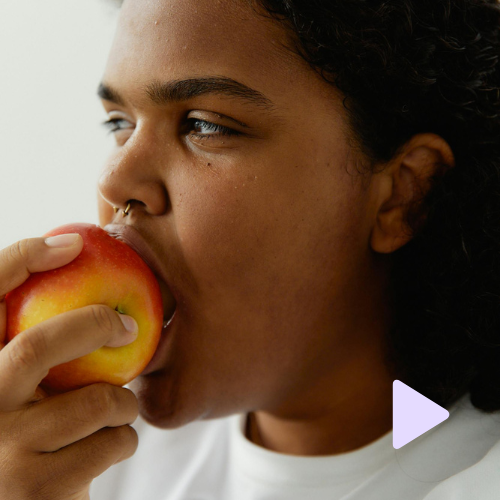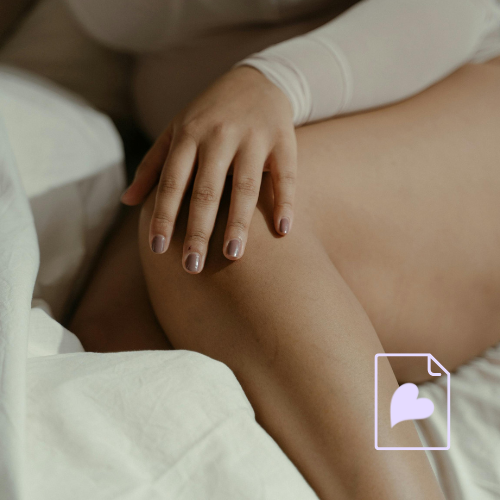Vulva Appearance anxiety
Anxiety about the appearance of the vulva has become an increasingly common experience and clinical presentation here at SHIPS. Usually, this anxiety centres around a worry about not being ‘normal’ which can have debilitating impacts on someone’s mental health, sexual health and relationships. Worries about the appearance of your vulva can mean having a lot of preoccupied thoughts during sexual experiences. This in turn can take you away from bodily sensation and pleasurable experience.
If this resonates with you, read on, because this blog will cover some helpful tips for understanding vulva anxiety and strategies for healing. It’s important to get one thing straight from the outset – there is no ‘normal’! There is incredible diversity in vulva appearance. The primary thing to remember is that there’s nothing wrong with you – it is our image-focused, patriarchal, sex-fearful cultural messaging that is the driving force here.
Our culture emphasises the importance of cis women’s appearance, and sees their sexual desirability as deeply connected to their value as a person. From the day we are born we are surrounded by imagery that does not represent reality. That tells us we are not okay and that we have to alter ourselves to meet the ideals of attractiveness. This is the global driving force of so many mental health issues – including vulva appearance anxiety.
Vulva appearance anxiety and body image
To understand the concept of vulva appearance anxiety, let’s first apply the lens of a more commonly recognised term: body image anxiety. Body image refers to your perception of your physical appearance including size, shape and overall attractiveness. It also includes attitudes, beliefs and emotions related to the body and how you perceive others’ perceptions of your body.
Common fears that relate to body image include the anticipation of being poorly judged due to body structure, shape, height and weight. This can result in feelings of embarrassment, shame and anxiety. Copious amounts of research indicates the link between negative body image and mental issues such as depression and eating disorders, as well as physical health outcomes.
What others think of us actually really matters to us on a primal level. As a social species, we have an evolutionary need for social acceptance to ensure our survival. What we think are the conditions required for this acceptance are based on social information we have absorbed over our lives ie. information we glean from the media and our interactions with friends, family, work colleagues and so on.
Checking our sources
This social information includes what we perceive others will find sexually desirable. The key here is that this is perception not fact, and there are factors that affect what information we have been exposed to, how we absorb it and how we then interpret it. Most of the time the sources of information about social acceptance are deeply disturbed and flawed. For instance, most media images are designed to sell an idea or product, or to entertain in some way – they are not designed to represent reality. Images like these are routinely edited and airbrushed.
When it comes to representation of vulvas, this information might have come from anatomy diagrams, social media and movies – but primarily from exposure to porngraphy. Pornography images are often digitally enhanced, actors may have had surgery on their genitals, and their pubic hair is often removed. The intent behind pornography is to sell content, not to provide an accurate representation of a vulva. If pornography is used as a social reference to represent an ‘ideal’ for vulva attractiveness, it sets up unrealistic and ultimately harmful expectations.
The consequence of these influences and expectations is vulva appearance anxiety. When people experience vulva anxiety they might notice the following signs:
Preoccupation with the appearance of your vulva
Negative thoughts about the appearance of your vulva
Anxiety about other people seeing your vulva
Anticipation that others will make negative judgements about your vuvla’s appearance
Thoughts about the appearance of your vulva during sexual activity that impacts your ability to maintain enjoyment
Thoughts about changing your vulva’s appearance through surgical procedures
If you notice any of these signs, here are some steps you can take to address your anxiety.
Step 1: Understand the driving forces (and their sources) through reflective questions.
1. What has contributed to your perception about what a ‘normal’ vulva looks like?
Thinking back over your life, consider:
What information have you absorbed about the appearance of the vulva?
See if you can take account of each source and consider, how reliable is this source? Is there any information I might have missed?
How did this information contribute to my perception of what is normal and desirable?
2. What has contributed to your perception of what is a desirable vulva?
Thinking back over your life, consider:
What information have you absorbed about what other people think of vulva appearance?
Why do you think different vulva appearances are more attractive than others? How have you come to this conclusion?
3. Reflect on society’s over-emphasis on appearance as connected to a person’s value
When you consider all the things that make you a valuable and loveable human being, how important do you think appearance is? (rate this as a percentage)
In terms of your overall sense of desirability, how important do you think is the appearance of your vulva? (rate as a percentage)
What are your reflections on these percentages?
4. Identify anxious thinking and its influence
Write down some of the anxious thoughts you have about your vulva and how often they occur
How do these thoughts make you feel?
How do these feelings influence your behaviour?
How does this impact your sexual experience and your relationships?
Step 2: Strategies for recovery
Become aware of genital diversity
There is actually incredible, beautiful diversity in the appearance of vulvas. This includes the vulvas shape, size, hair texture and density; the colour and texture of the skin and the length of the labia. The appearance of our vulva can change over our life, after we have children, or if we have medical conditions or procedures.
The Labia Library is an incredible resource containing a collection of images of different vulvas. This can help give you a more accurate sense of vulva appearance diversity. Looking back over your life and your sources for information about vulvas, can you identify how this might have skewed your perception of what is normal? It is virtually impossible for any of us to have gathered information about diversity if we are just referring to social media, pornography or books. These sources will often only provide a narrow range of representations, which can skew our perception of ‘normal’.
Comparing our vulva to what we think is ‘normal’ is a contributing factor to vulva appearance anxiety – so if we can challenge these sources of information and add some new ones, it will help us manage these anxious thoughts that can ultimately detract from our experience and pleasure of sex.
Explore and identify all the things that make you desirable
If one of the driving factors of your vulva anxiety is that you think a certain appearance of a vulva is necessary in order to be desirable or attractive, it can be helpful to ‘zoom out’ for a moment. Write a list of all the other aspects of you that make you desirable, which can include aspects of your appearance, but could also include your scent, your voice, your style, your movement, your personality, your behaviour and so on. Often, people who experience anxiety about their appearance will over-emphasise the importance of their appearance as part of their overall value and identity. That’s why it can help to bring in some perspective.
Explore all the valuable parts of you
Zooming out even further, see if you can name the parts of your identity that give you value. Are you a great partner? A good friend? Are you creative? Do you care for your pets? See if you can name things that make up you and your identity, that are connected to your value. The importance of what your vulva looks like might begin to pale in comparison. This is why getting a ‘fuller picture’ and a zoomed out perspective is a great tool for healing. Even if you can't shift your negative perception of your vulva, you can reduce its dominance in your perception of worth, value and attractiveness.
Explore all the functions of your vulva and recognise the wonderful things it can do!
How your vulva looks is only one aspect of your potential relationship with it. Your vulva can also do some incredible things! Let’s highlight a few:
Pleasure: your vulva can be responsible for great pleasure! Your clitoris has over 10,000 nerve endings (that is more than the penis) and is wrapped around the internal structure of the vagina. Stimulation of the labia, the pubic mount, your clitoris and the internal part of vagina and resulting in a whole range of interesting sensation and different kinds of pleasure (which doesn’t just include orgasm!).
Procreation: Your vulva plays a vital role in your capacity to create life! Your vulva is involved in the process of conception – sperm travels through the vagina, cervix and fallopian tubes to the egg. Once a baby is fully developed, the vulva is the birth canal – the entryway for new life.
Elimination: Your vulva contains your urethral opening, where urine is released. If you menstruate, your unfertilised eggs are passed through your vulva during menstruation.
Take a moment to fully appreciate the vulva’s incredible capacities – consider and appreciate the important functions that our vulva plays in our health. When anxious thoughts arise, you can try redirecting focus towards thoughts of appreciation.
Challenge cognitive distortions
Looking at your list of anxious thoughts, can you see where there may be some thinking errors? When we are thinking anxiously, we can have cognitive distortions. They can include personalisation, catastrophisation, and ‘black and white thinking’. This way of thinking skews our perception so that we’re not considering all the information available to us.
Some examples of cognitive distortions that relate to vulva anxiety include:
No one will find me attractive if my vulva looks like this (fortune-telling)
People are looking at the bulge in my pants (mind-reading)
My partner is avoiding having sex with me because they are turned off by the appearance of my vulva (personalisation and mind-reading)
When we notice a cognitive distortion, it can be helpful to ask:
What evidence do I have for this?
Is there anything I am missing?
Could there be another explanation?
Cognitive distortion represents our perceptions which are driven by our fears, rather than reality.
Developing a loving relationship with your vulva
If you have experienced anxiety about the appearance of your vulva for a while, this means that you have been repeating some negative messages towards your vulva. This can, in turn, prompt some shame and maybe even disconnection from your vulva.
Part of healing and recovering from vulva image anxiety can involve rebuilding your relationship with your vulva. Here are a few exercises that can help:
1. Mindful mirror exercises:
To set up for this exercise you are going to need
A full length or a hand mirror
A private space
A timer
The aim of these exercises is to mindfully notice your vulva and any thoughts that arise about your vulva for two minutes. Notice with curiosity, not judgement. Follow steps A through F, and repeat and/or spend longer at a step as you wish.
A. Start by finding a comfortable seat in front of your mirrors.
B. Close down your eyes.
C. Start by taking three long, deep breaths. Noticing the air moving in and out, and the rise and the fall of your chest.
D. Open your eyes and set your timer for two minutes.
E. Looking in the mirror at your vulva for the next two minutes, you continue to notice your vulva mindfully and notice any thought or sensation that arises. Just notice without judgment. Your role is to be a curious observer.
F. When the timer ends, make some notes in your diary about this experience.
This exercise can be repeated and the time increased for greater impact.
2. Vulva Art
To set up for this exercise you are going to need:
A full length or a hand mirror
A private space
Some art supplies like paper, pens, pencils or paints
A. Take a look at your vulva using the mirrors.
B. Using the paper and pens/ paints, see if you can draw your vulva with a colourful, creative twist. Experiment with adding lines, textures etc – there is no limit!
C. Reflect on how this art makes you feel towards your vulva
3. Pillow talk
Using an object to represent your vulva and help you develop further understanding around your relationship with it, and it can help you to engage in some healing dialogue. For this exercise pick an object to represent your vulva, or you can even order a vulva pillow.
Ask your ‘vulva’ (and try to imagine how it might answer)
How does it feel?
How does it feel about your treatment towards it?
How does it feel towards you?
Ask yourself:
How do you feel about your vulva?
How do you feel about the way you have treated it?
Is there something kind or loving you could say toward your vulva?
It might be helpful to place your vulva object in a location where you can see it on a daily basis and repeat a kind or loving statement toward it. This will help to reinforce a new relationship and dialogue with your vulva.
Other factors that may contribute to vulva anxiety
It is important to highlight that there are often past experiences or underlying psychological issues that can drive vulva anxiety. These can include:
Trauma including sexual assault and violence
Gender Dysphoria
Personality disorders such as BPD
Mood Disorders such as Generalized Anxiety Disorder
Pain disorders
Eating Disorders
It can be important and necessary to identify and address these issues first, before your vulva image anxiety can be resolved. Working with a psychologist can be a huge help in understanding a map of all of your experiences and symptoms, enabling you to figure out the right way forward.
This content is not intended to replace therapy. If you are experiencing vulva anxiety, it can be very helpful to have the support of a psychologist to guide you through your individual process for healing.
AUTHOR
Dr. Sarah Ashton, PhD
Director & Founder of Sexual Health and Intimacy Psychological Services (SHIPS)





